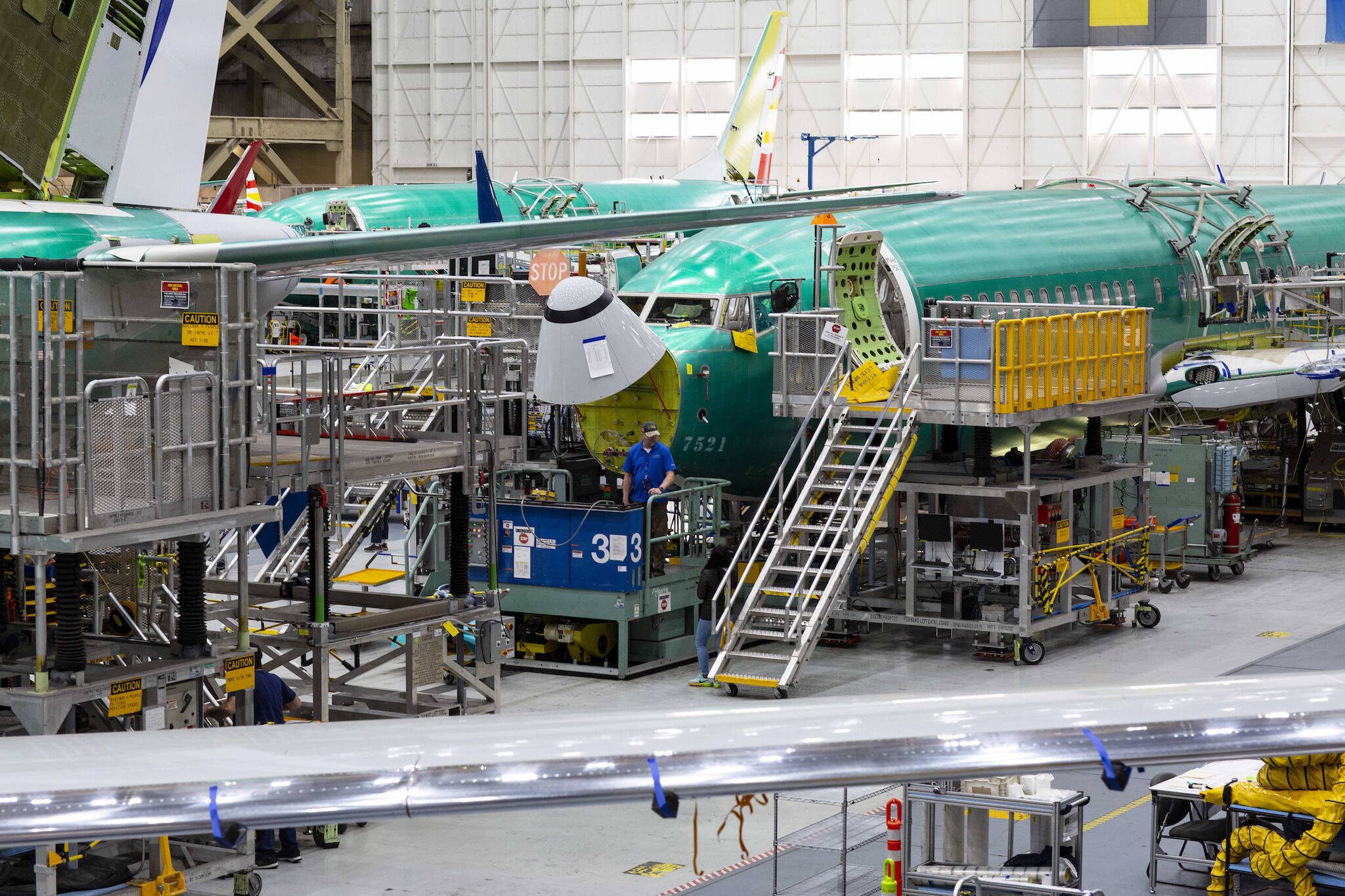By Mark Walker and Niraj Chokshi / © 2024 The New York Times Company
WASHINGTON — In a rare move, a federal judge Thursday rejected Boeing’s proposed agreement with the Justice Department to plead guilty to conspiracy to defraud the federal government in connection with two fatal 737 Max crashes, according to court documents.
The plea agreement, reached in July, has been a flashpoint for controversy. It would have required Boeing to admit to deceiving the Federal Aviation Administration about critical safety issues tied to a flight control software implicated in both accidents. The crashes, a Lion Air flight in 2018 and an Ethiopian Airlines flight in 2019, killed a total of 346 people.
Judge Reed O’Connor, of the U.S. District Court for the Northern District of Texas, raised concerns on several levels about how the agreement had been handled, including a question about the independent monitor who was to determine if Boeing was abiding by the terms of the agreement. All parties have 30 days to decide how to proceed.
O’Connor’s ruling is another setback for Boeing and its shareholders, adding one more layer of uncertainty to the company’s future as it struggles to move past its legal issues stemming from the 737 Max crashes. The rejection of the settlement puts Boeing’s hopes of closing this chapter on hold.
Among the issues raised by O’Connor during an October hearing in Fort Worth, Texas, was that accepting the proposed deal would stop him from levying penalties beyond those already laid out in the deal.
In his ruling, the judge said the plea agreement’s process for selecting the independent monitor, including prohibiting the judge from considering violations of the monitor’s anti-fraud recommendations, improperly marginalizes the court’s authority to oversee the case. The judge pointed out that the federal government has monitored Boeing for three years and that “it is fair to say the government’s attempt to ensure compliance has failed.”
O’Connor also ruled that the plea agreement unfairly constrained the court by mandating diversity requirements in the selection of an independent monitor tasked with overseeing Boeing’s future anti-fraud compliance.
“Marginalizing the court in the selection and monitoring of the independent monitor as the plea agreement does undermines public confidence in Boeing’s probation, fails to promote respect for the law and is therefore not in the public interest,” O’Connor wrote.
The proposed agreement included a fine of up to $487 million, credits for prior payments that could significantly reduce the penalty and a three-year probation period during which Boeing would invest $455 million in safety measures.
Lawyers for some victims’ families have staunchly opposed the plea deal, arguing that it inadequately holds Boeing, and especially its executives, accountable for the tragedies.
Paul Cassell, an attorney representing the families, hailed the ruling as a victory.
“Judge O’Connor’s emphatic rejection of the plea deal is an important victory for the families in this case and, more broadly, for crime victims’ interests in the criminal justice process,” Cassell said in a statement.
The ruling is not expected to have an immediate effect on Boeing, which is in the process of increasing production of the 737 Max, its most popular jet. The FAA restricted output of the plane after a panel blew off a Max in flight in January. Manufacturing was also essentially frozen for two months this fall when thousands of production workers went on strike. They returned to work last month.
The panel incident resulted in no major injuries, but reignited concerns about the quality and safety of Boeing’s planes. To address those concerns, Boeing has changed processes and procedures; added more training and inspections; begun the process of buying Spirit AeroSystems, a major supplier; and undergone a management shake-up.
Boeing’s new chief executive, Kelly Ortberg, who assumed the role in August, has said that the company is in need of “fundamental culture change.” He has also announced a corporate restructuring that includes cutting 17,000 jobs, or about 10% of Boeing’s workforce.
This article originally appeared in The New York Times.
Talk to us
> Give us your news tips.
> Send us a letter to the editor.
> More Herald contact information.

























